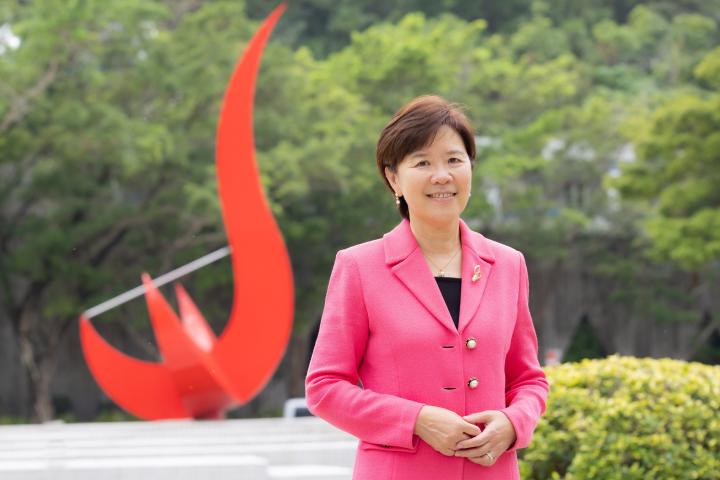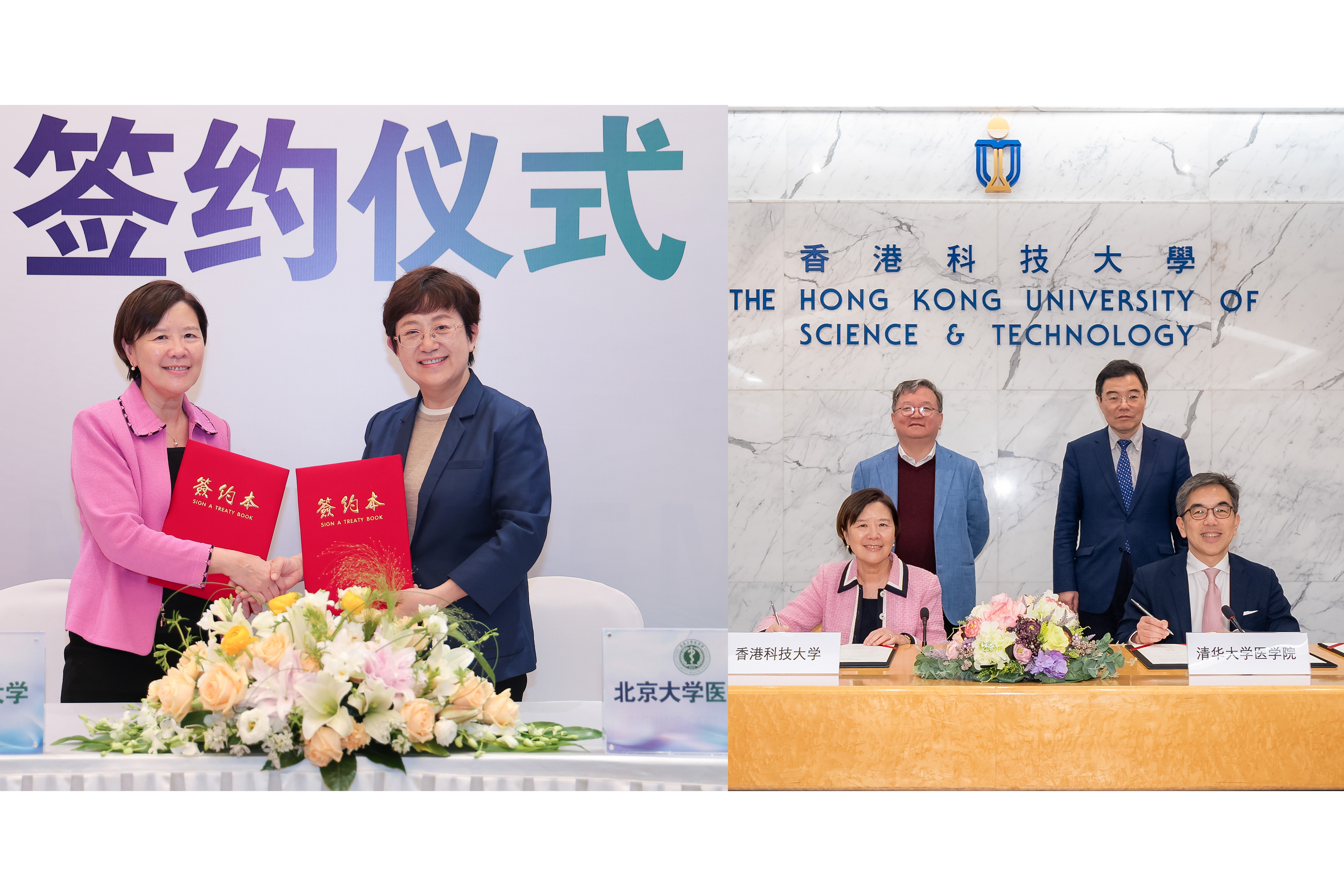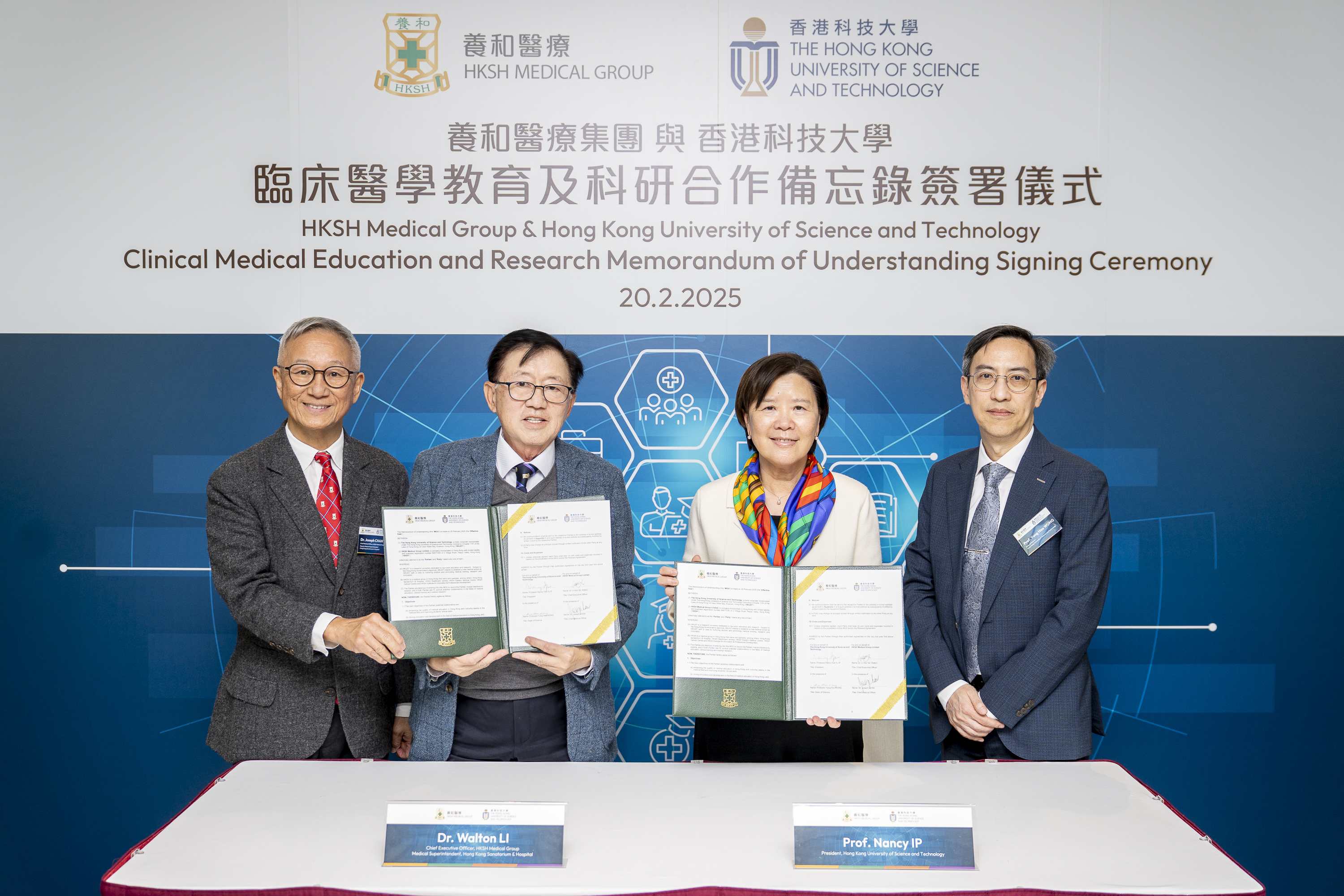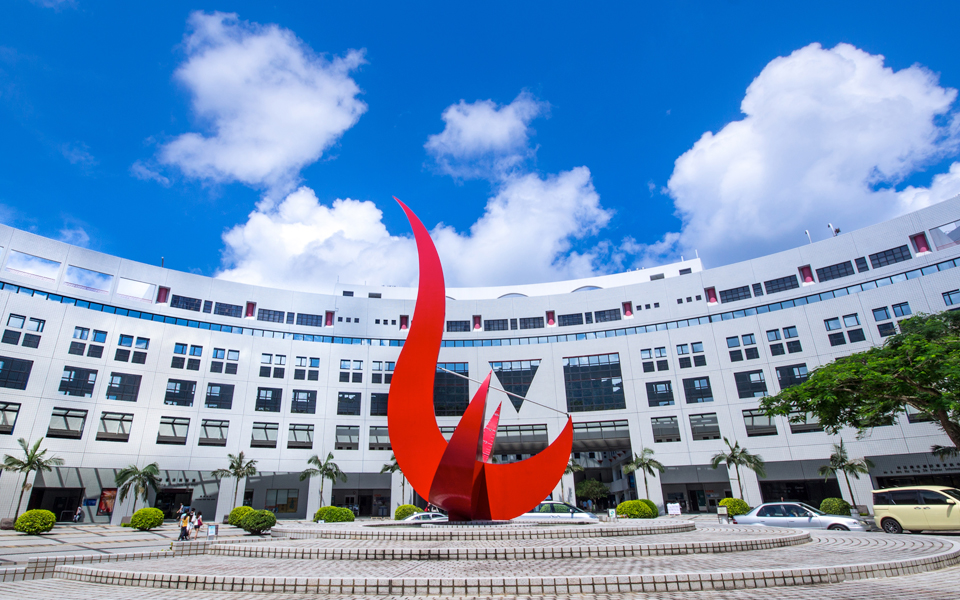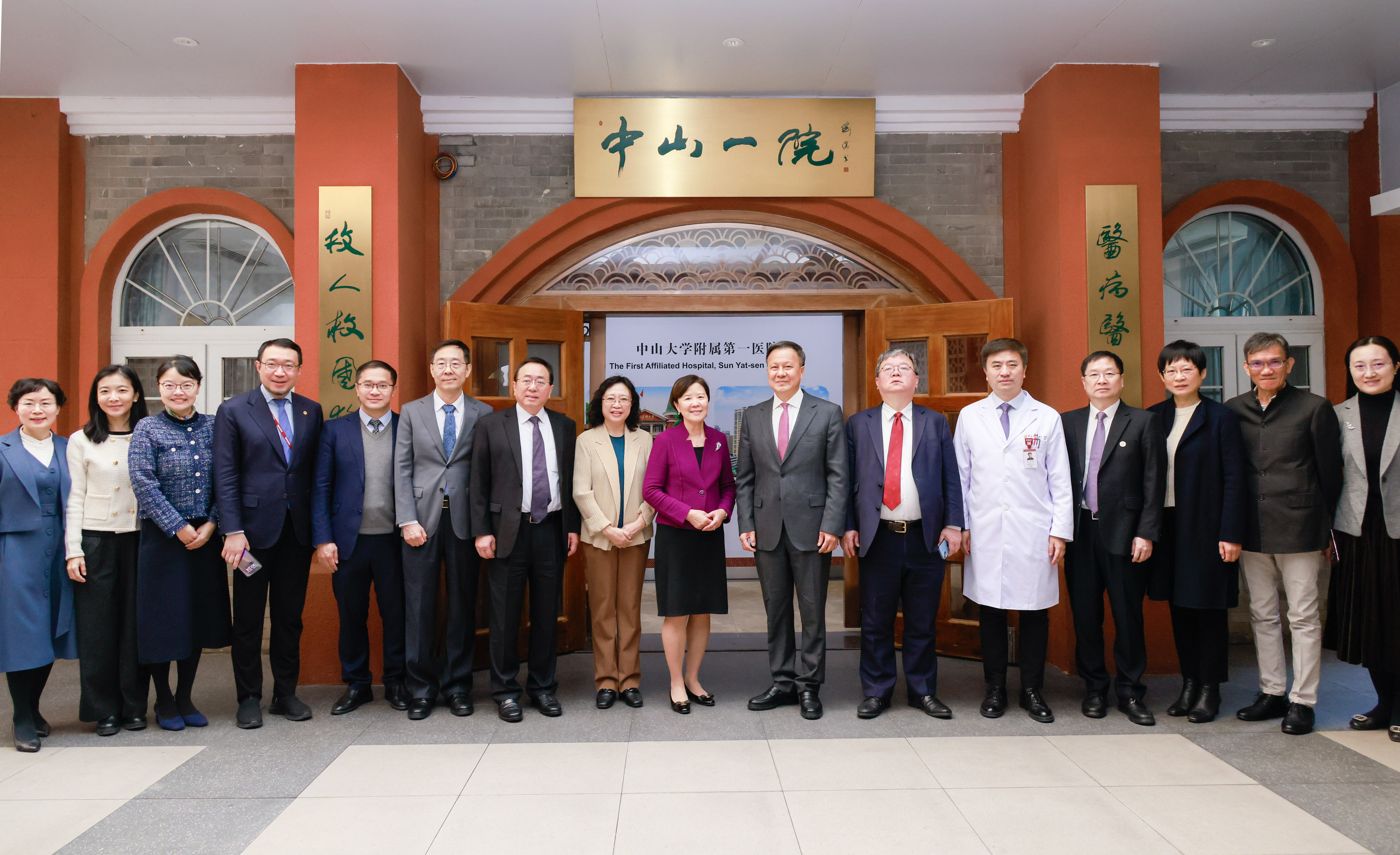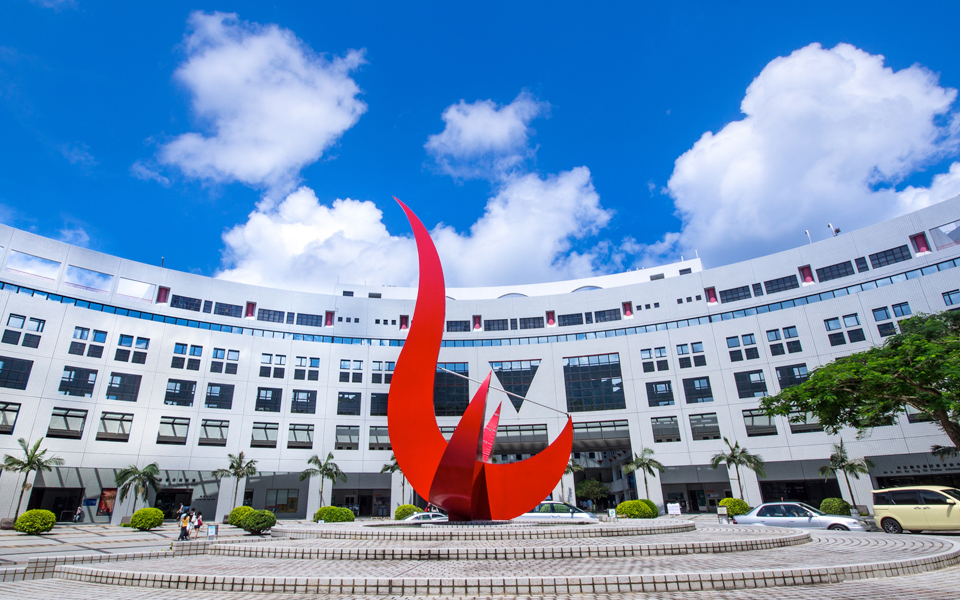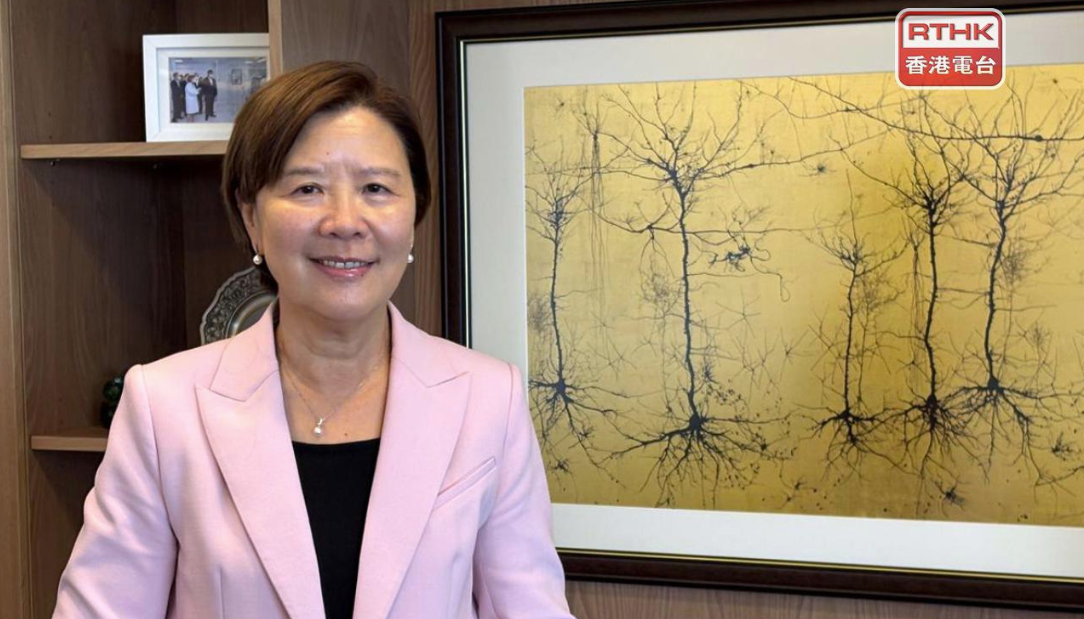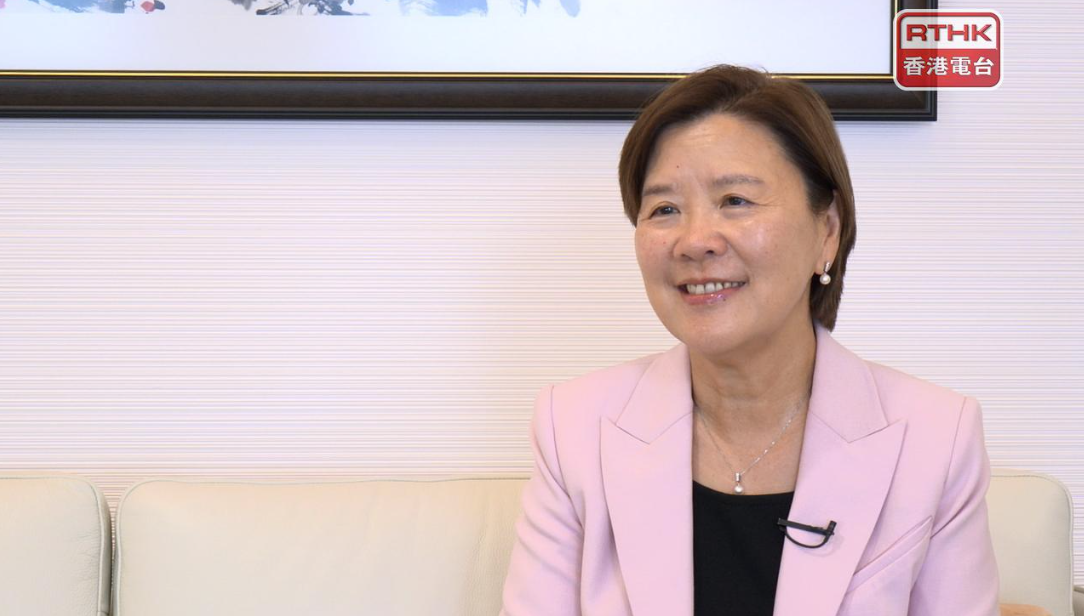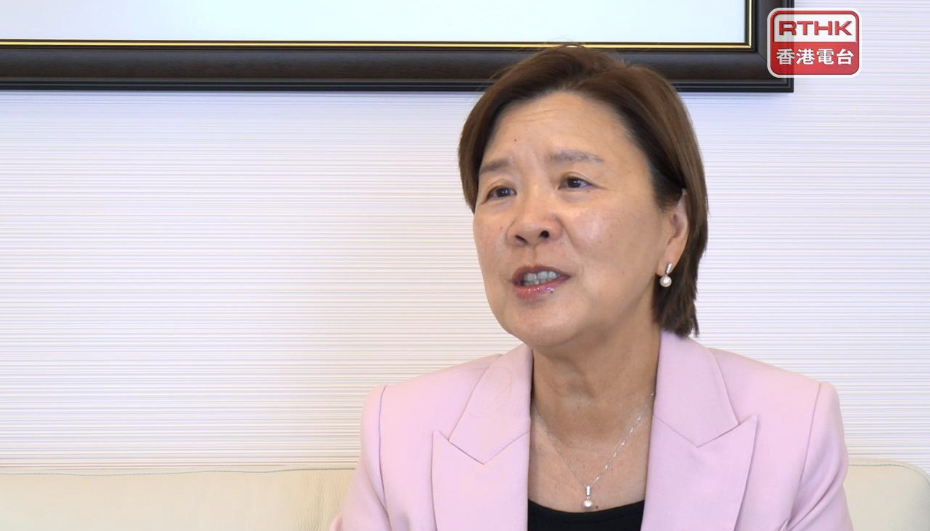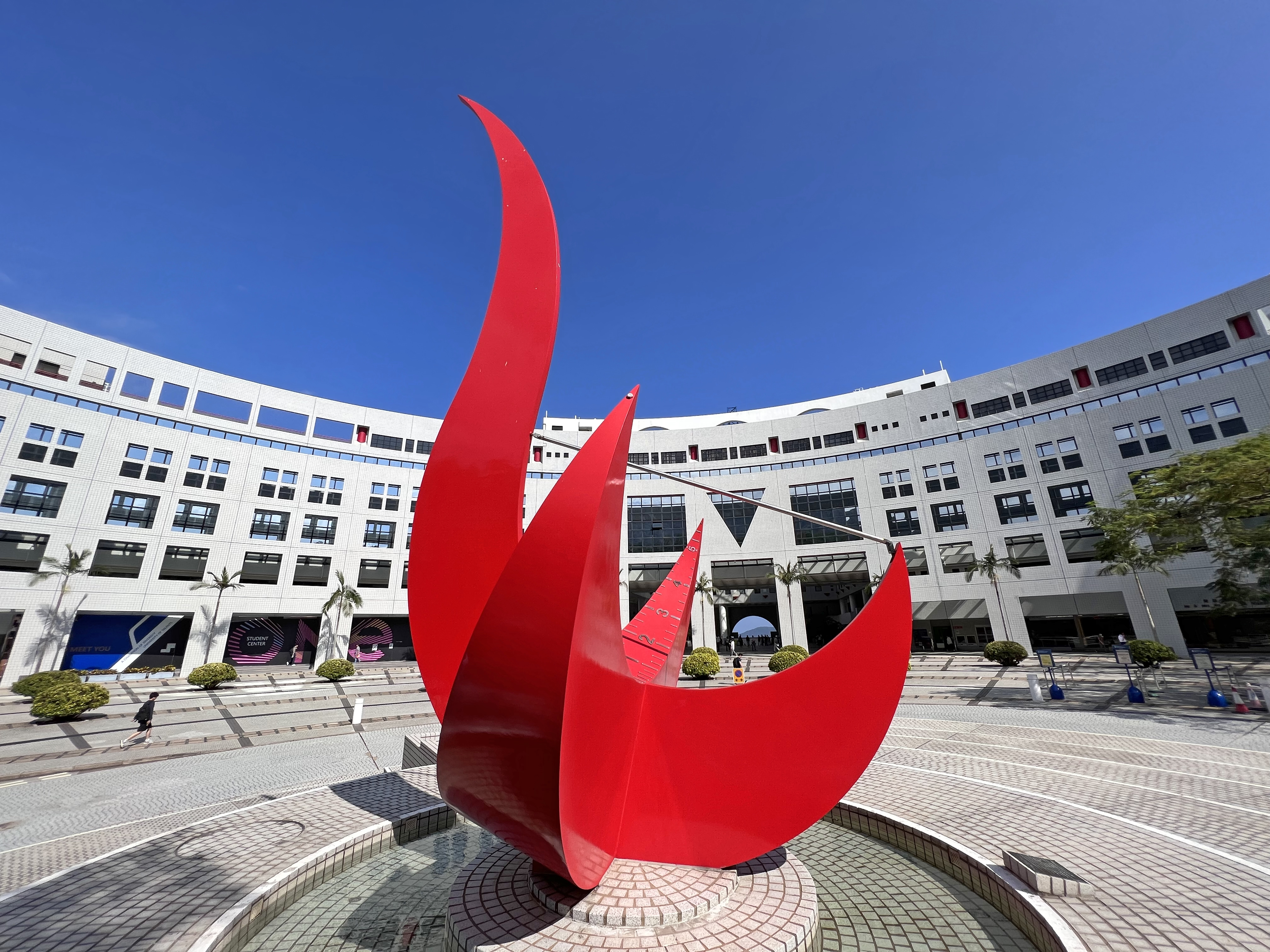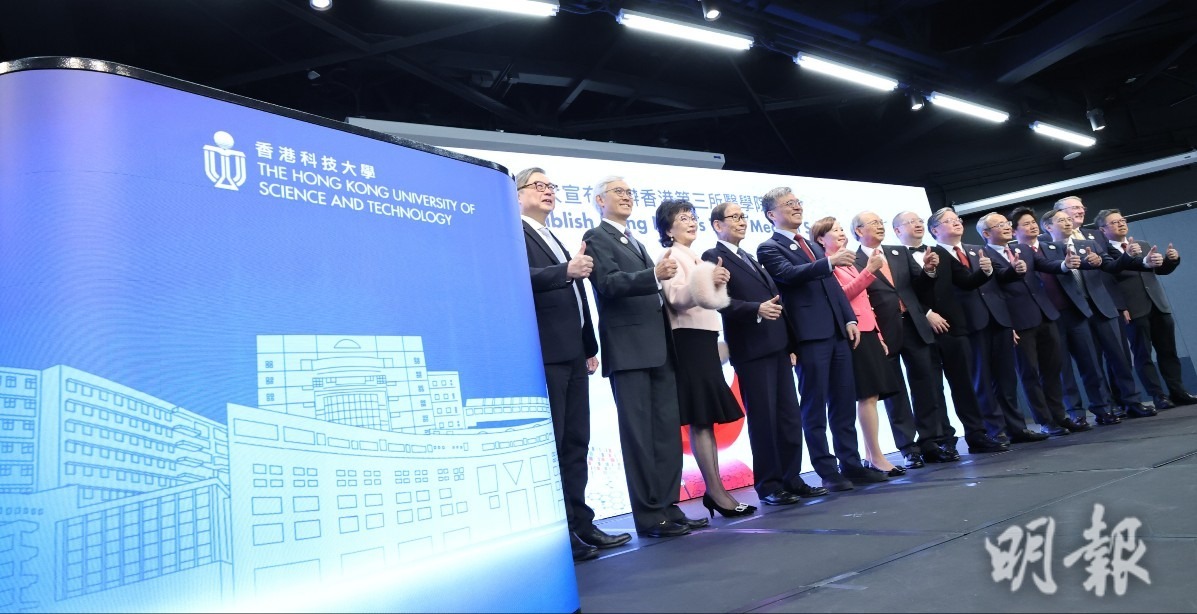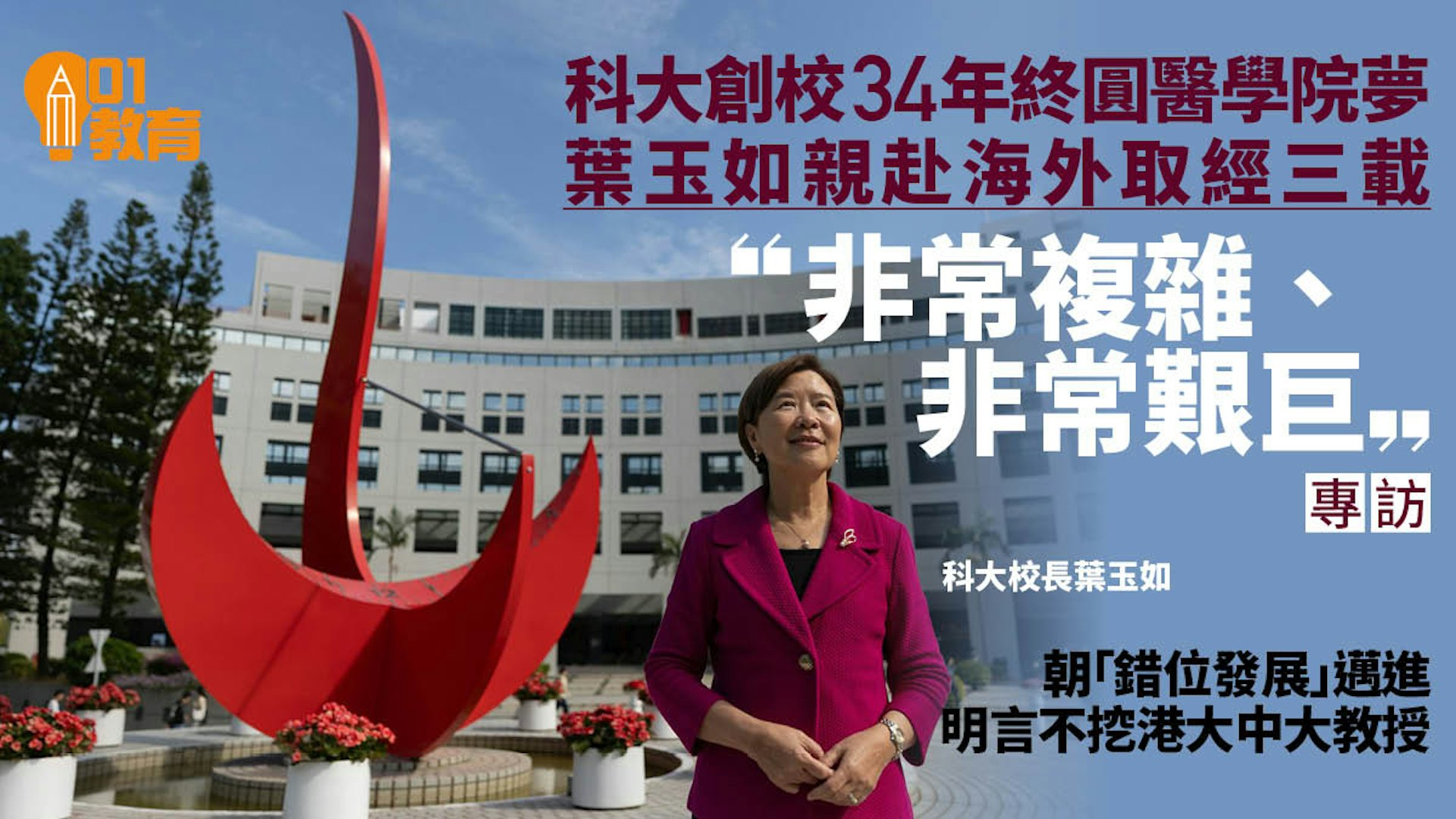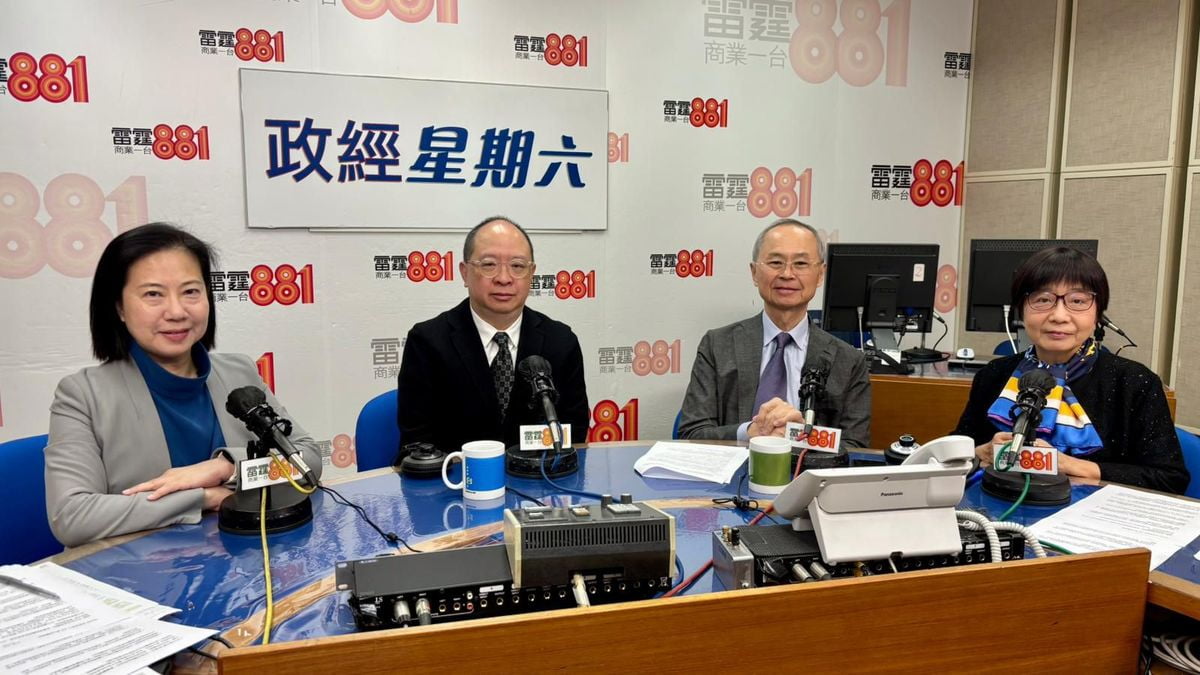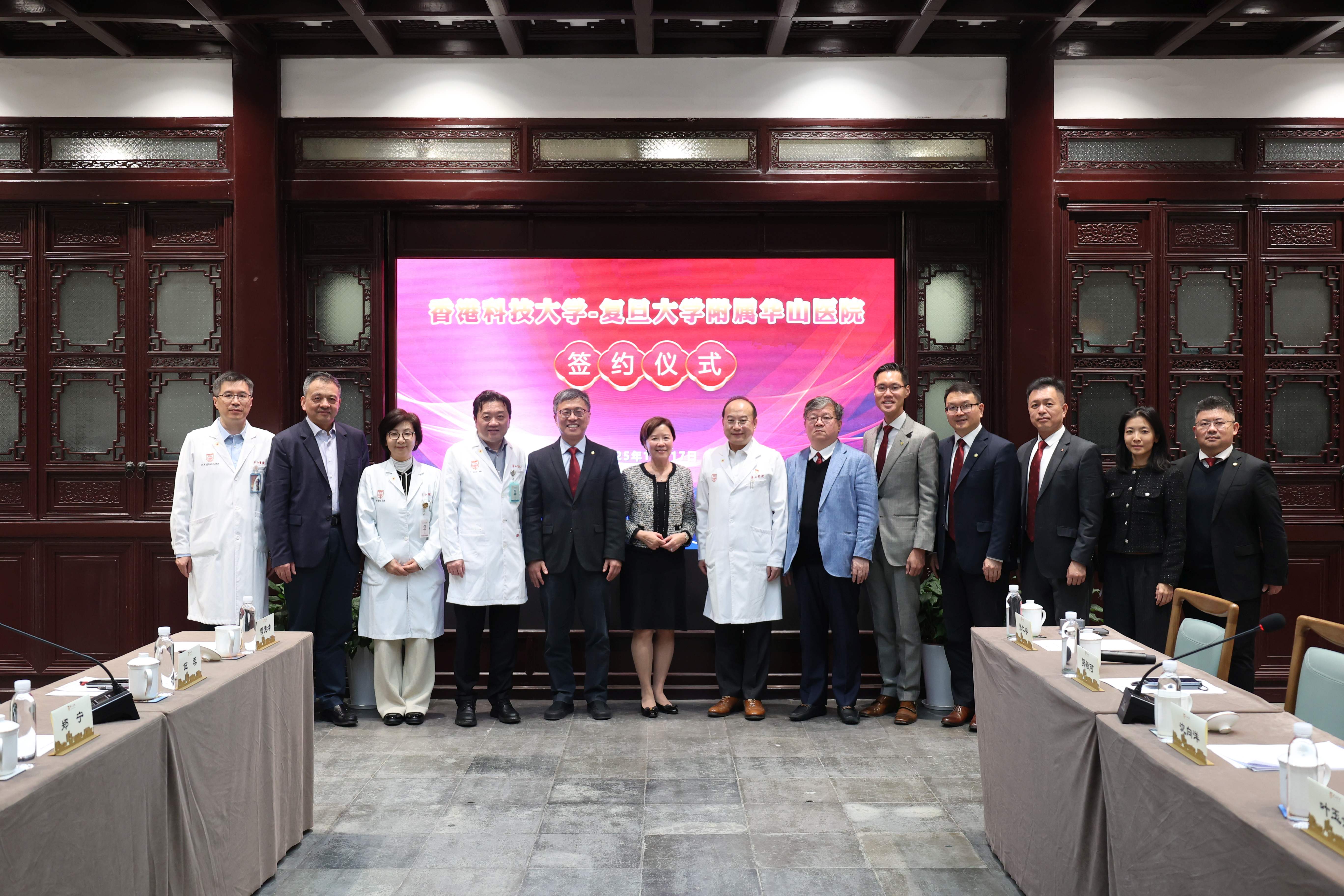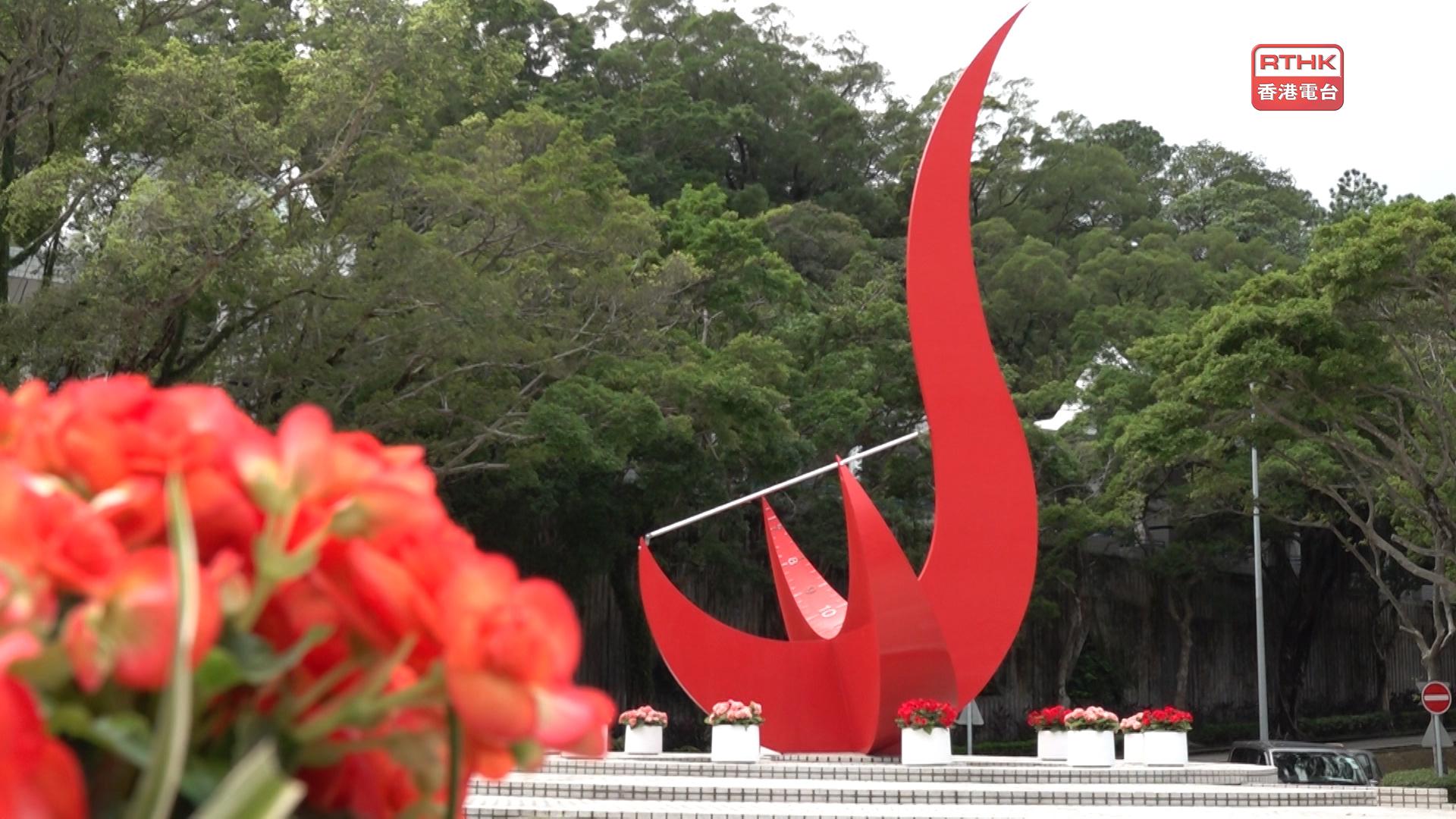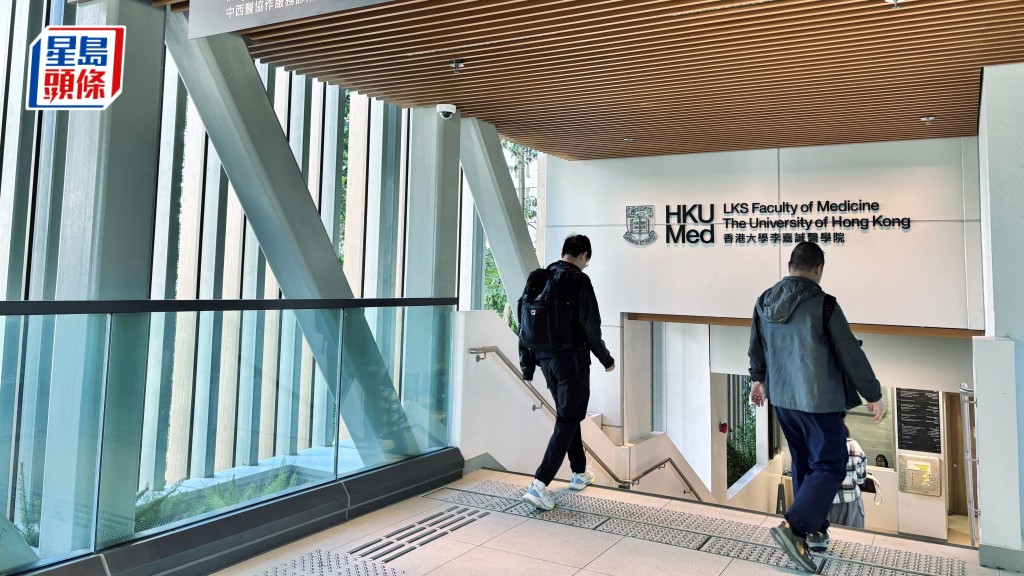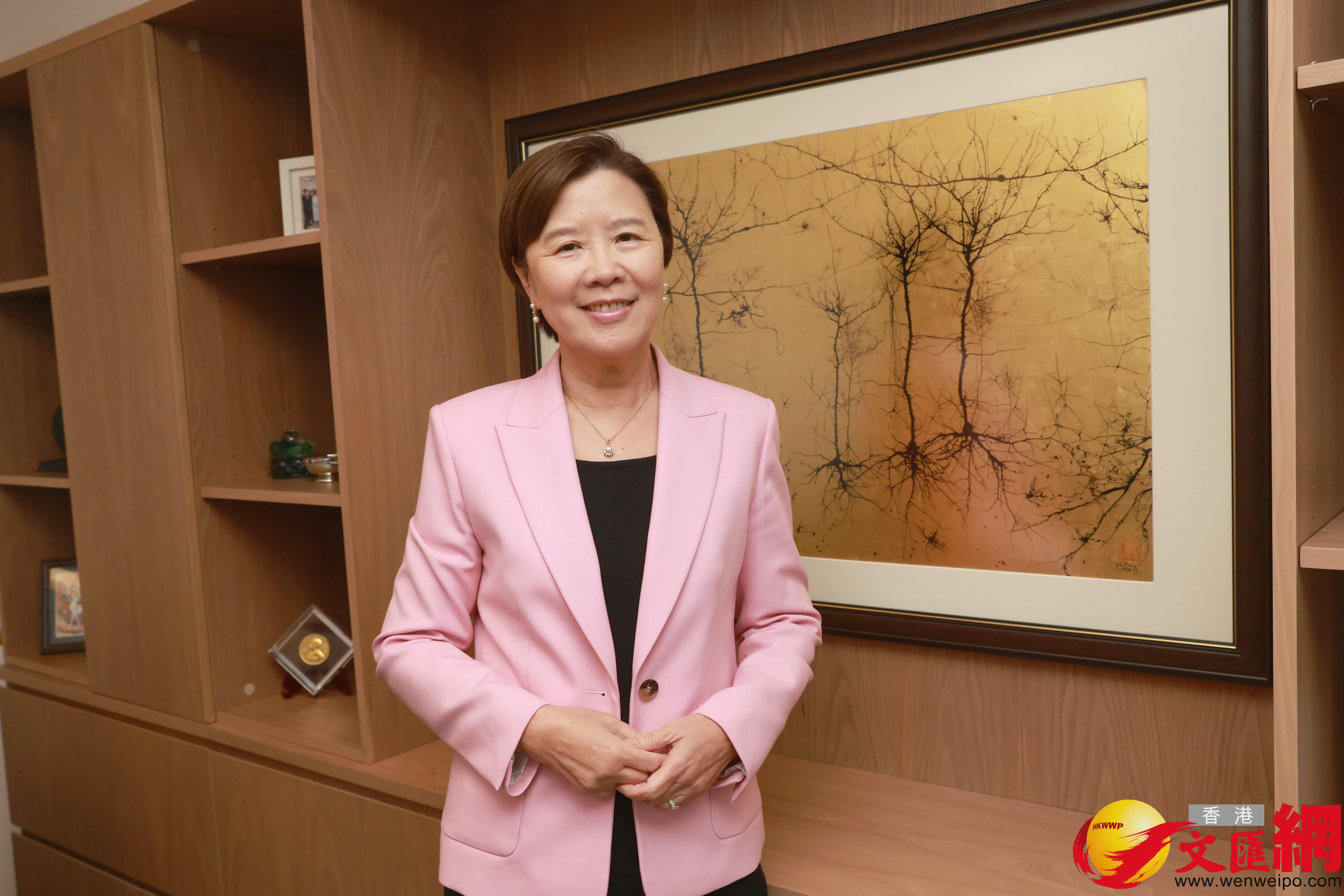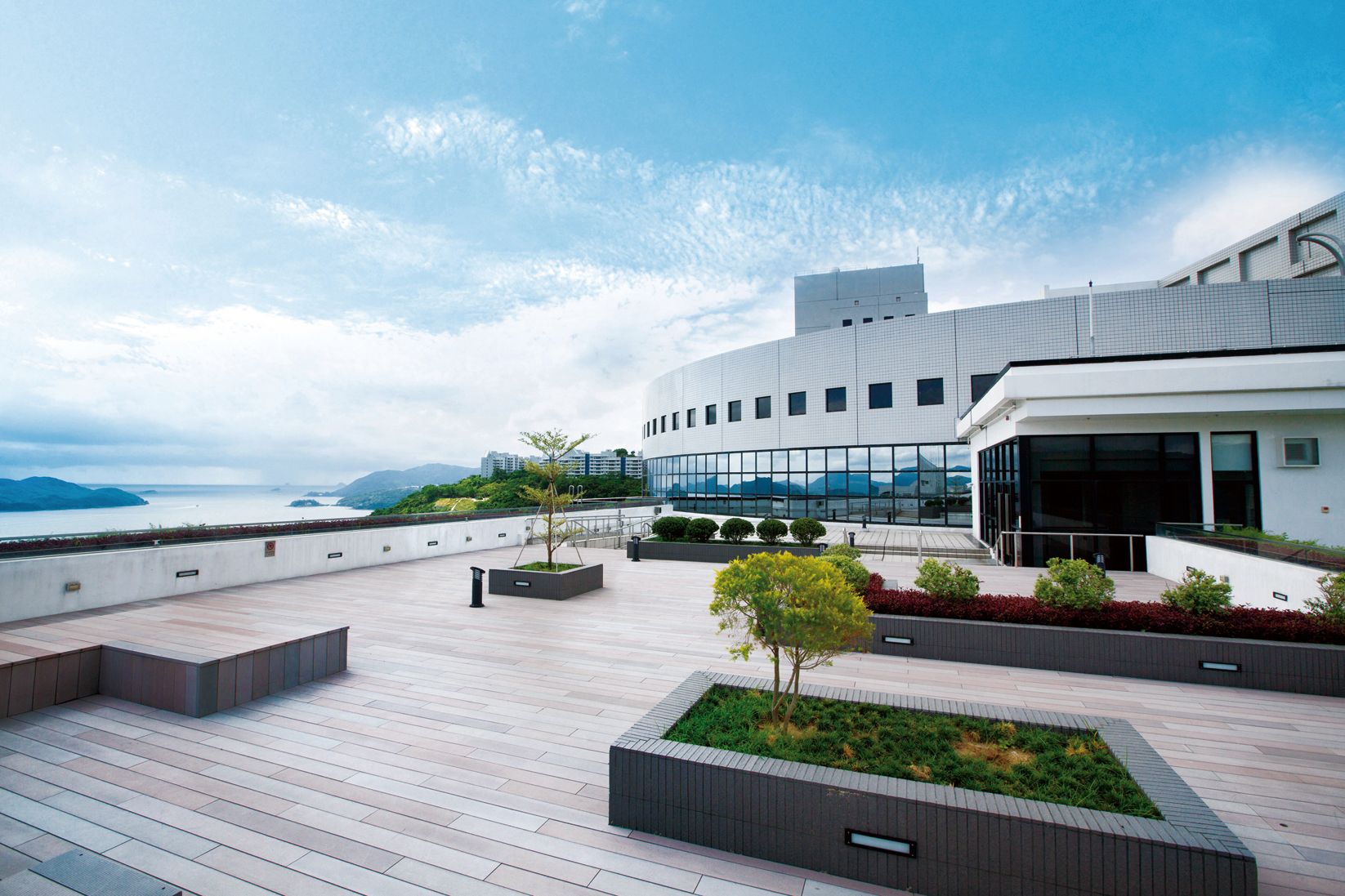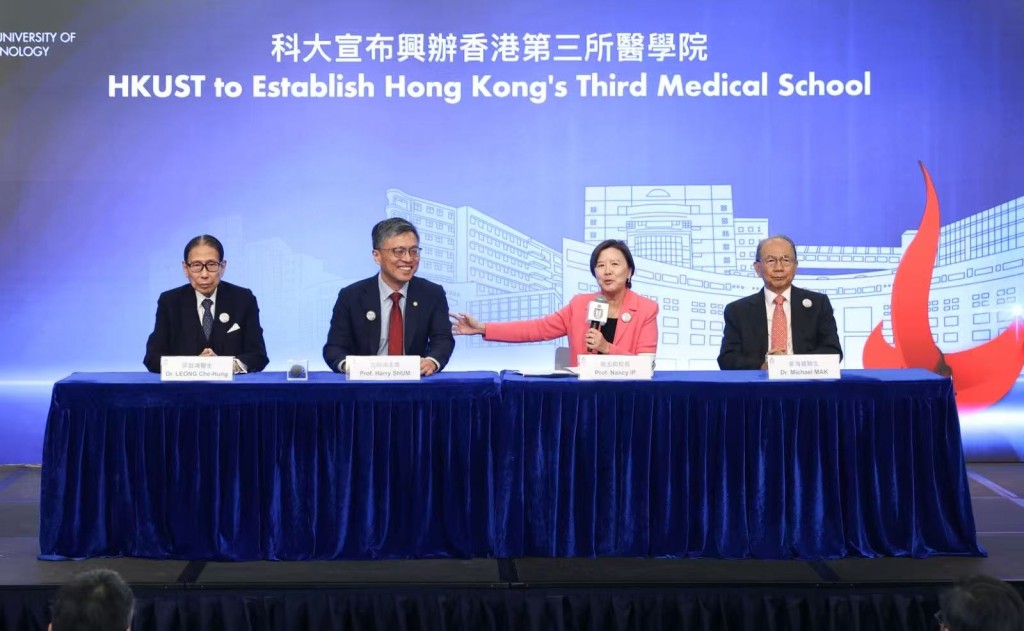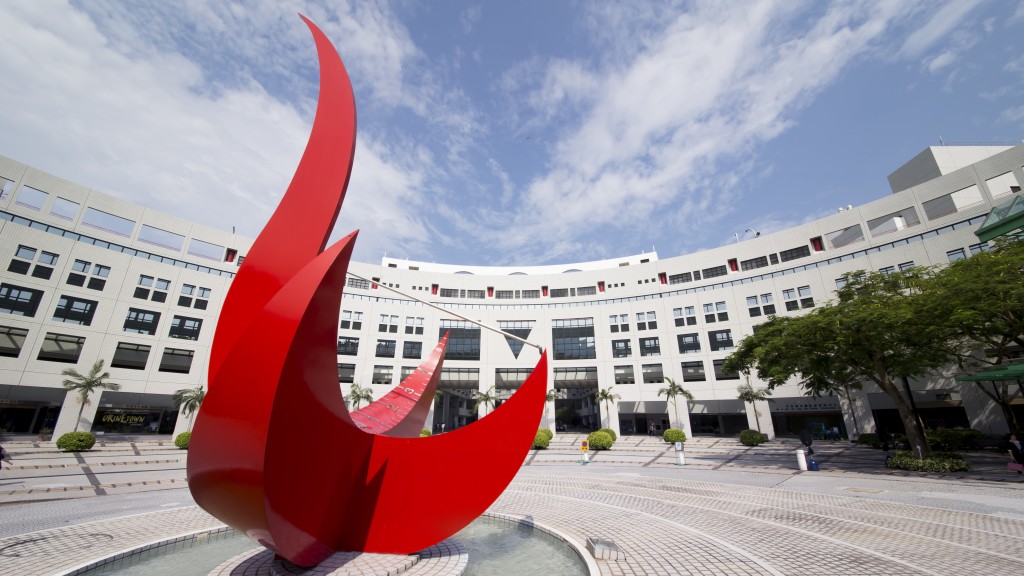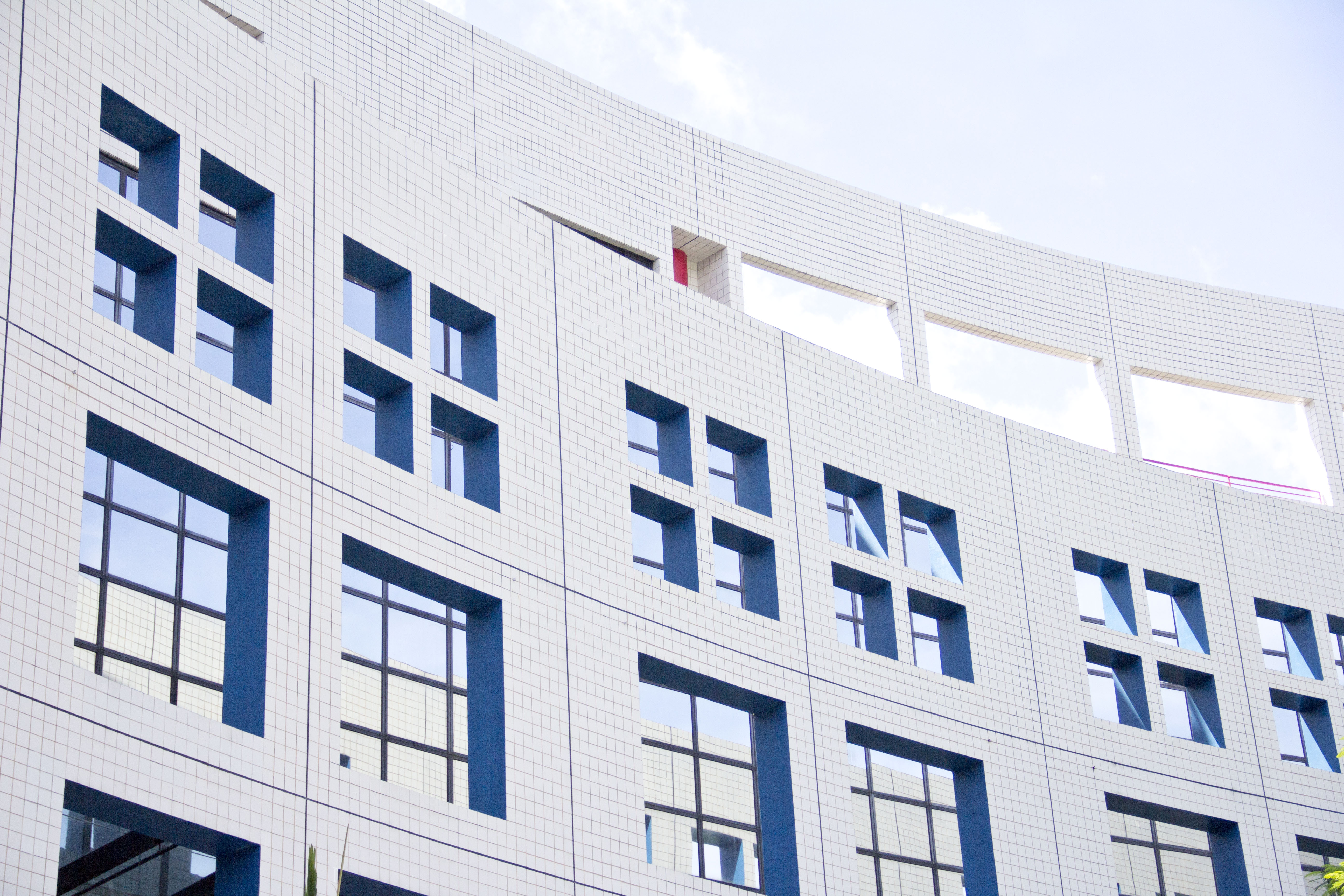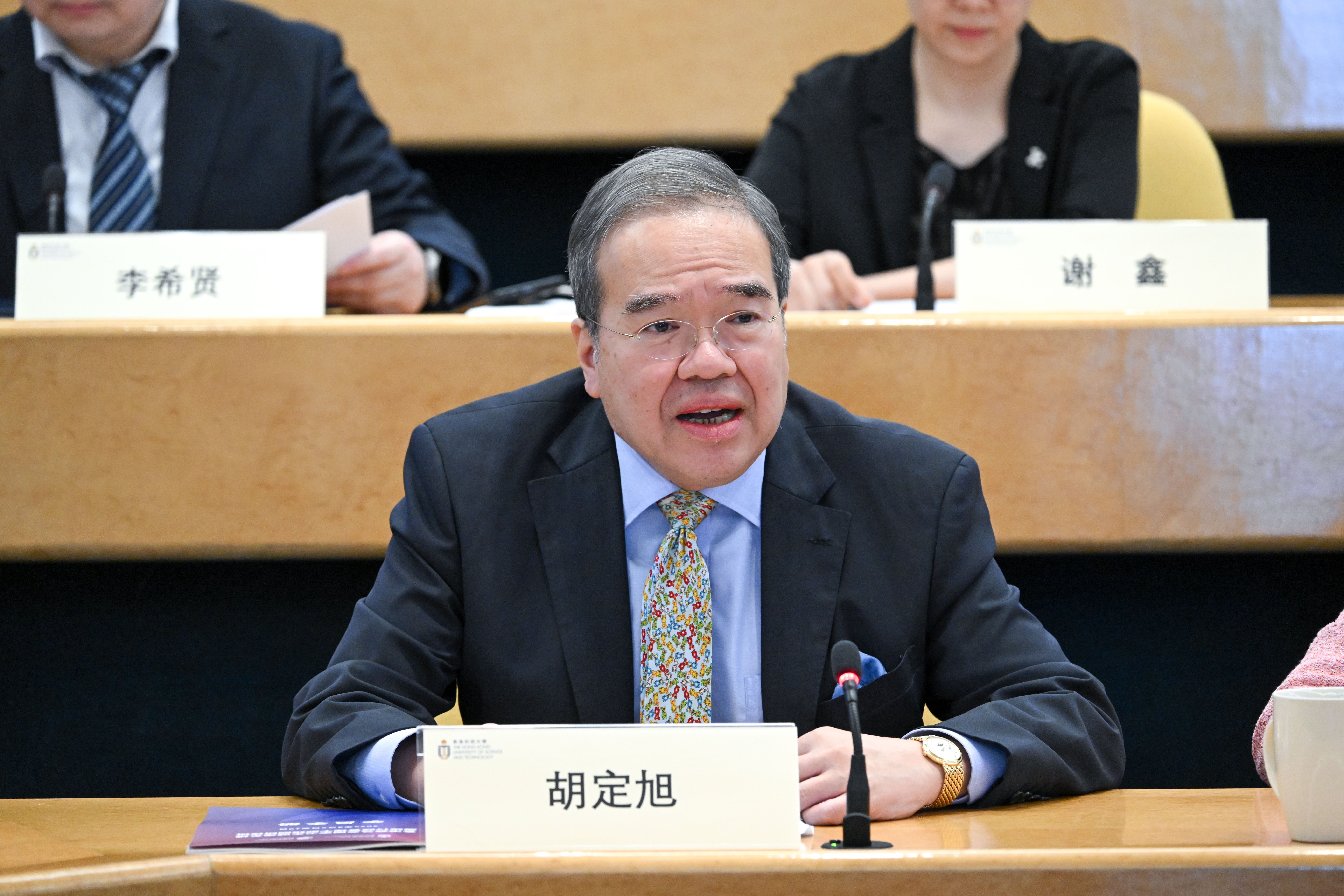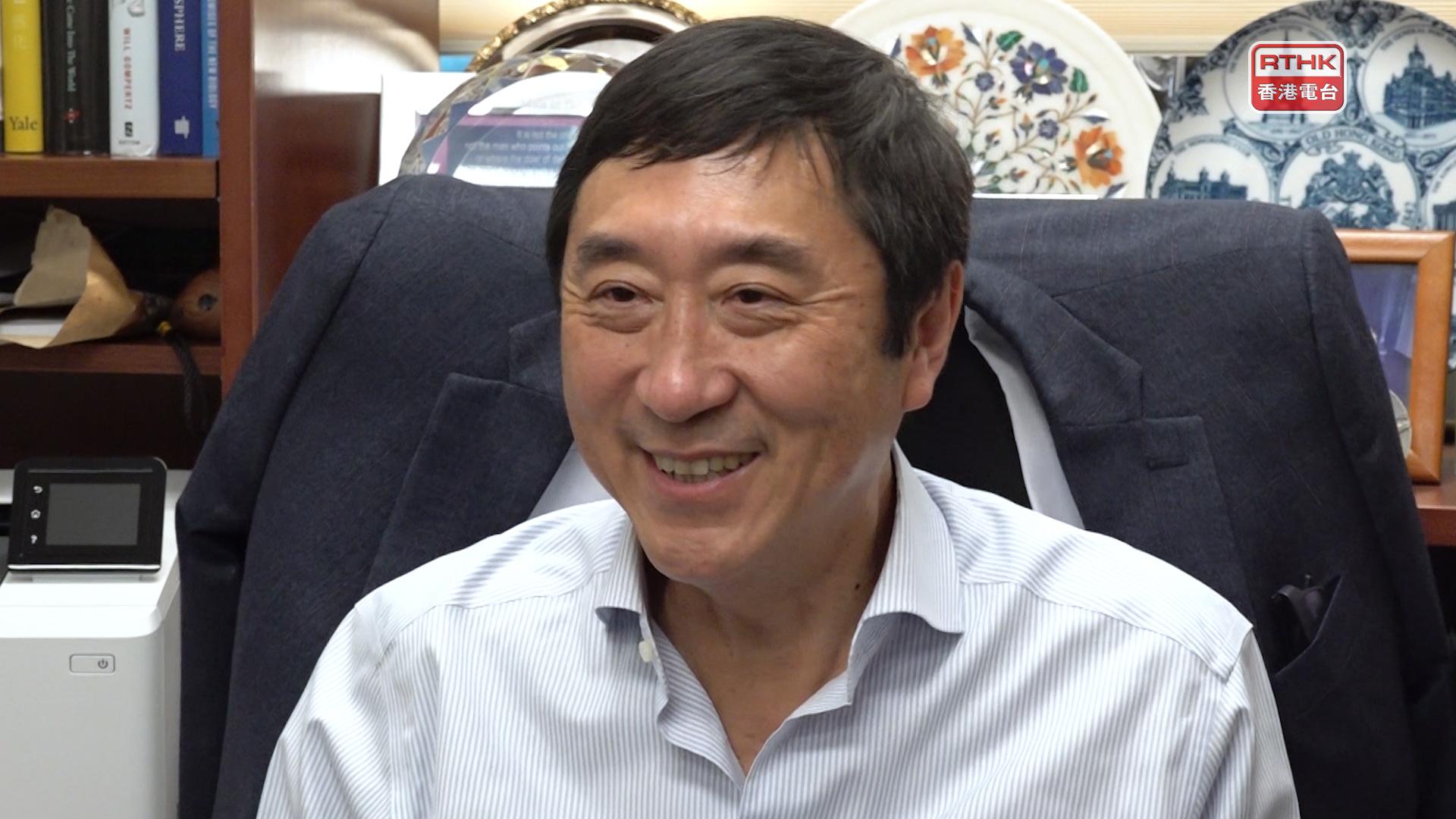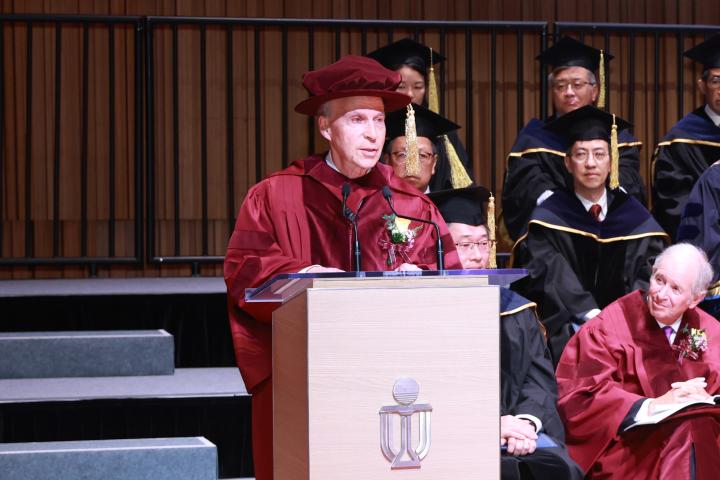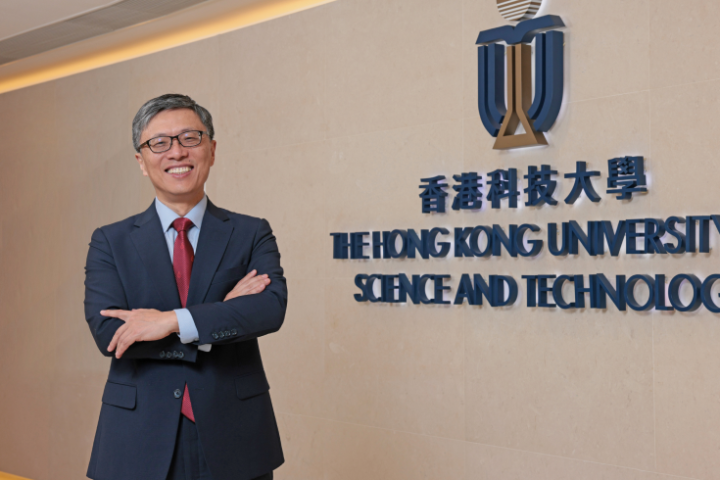
"As HKUST prepares to celebrate its 35th anniversary next year, it reaffirms its commitment to establishing a world-class medical school that serves Hong Kong..."
Prof. Harry SHUM, Council Chairman of HKUST
Our Goal
To nurture the next generation of clinically excellent, technology-savvy doctors and shape the future of medicine.

News & Stories
With the support of the HKSAR Government, The Hong Kong University of Science and Technology (HKUST) has commenced preparations to establish a new medical school. Dedicated to training a new generation of tech-savvy doctors, the School will bolster the future readiness of the local healthcare system and advance Hong Kong's development as an international hub for medical training, research, and innovation.
Prof. Harry SHUM, HKUST Council Chairman, remarked, "The launch of preparations for Hong Kong’s third medical school at HKUST represents a landmark milestone for the University. This initiative is essential to addressing the city's evolving healthcare needs and will significantly enhance the resilience and sustainable development of Hong Kong's healthcare system. HKUST expresses its deepest appreciation to the HKSAR Government's Task Group on New Medical School for its comprehensive assessment on the submitted proposal, and to the numerous experts, scholars, and community members who have provided unwavering support over the past two years."
Prof. Shum emphasized that HKUST eagerly anticipates collaborating closely with the medical schools of the University of Hong Kong and The Chinese University of Hong Kong. By sharing resources and leveraging complementary strengths, these partnerships will advance medical education and research across the city. He further highlighted the strong foundations established by Hong Kong Baptist University and The Hong Kong Polytechnic University in Chinese medicine, allied health, and nursing, respectively, noting substantial opportunities for multifaceted cooperation to enrich and diversify Hong Kong's healthcare education ecosystem.
Prof. Nancy IP, HKUST President, reiterated her gratitude to the Chief Executive, the Secretary for Health, and the Secretary for Education for their steadfast support. "The HKSAR Government has shown a visionary foresight in establishing Hong Kong as an international hub for scientific research and medical education, actively supporting the national goal of building China into a leading country in education," she said. "HKUST is fully committed to aligning with the government's strategic plans, including the development of the Northern Metropolis. The new medical school represents a pivotal initiative that supports 'the 2024-2035 Master Plan on Building China into a Leading Country in Education.' It will advance Hong Kong's ambition to develop world-class universities and disciplines. Leveraging the Northern Metropolis University Town as a strategic platform, we aim to deepen industry-academia-research collaboration and cultivate more top-tier talent in healthcare and technology for the benefit of both Hong Kong and the nation."
"Scientific research is in the HKUST’s DNA, and we place paramount importance on interdisciplinary education and research. The HKUST School of Medicine will be guided by the core principle of 'integrating engineering and medicine through research.' Through an interdisciplinary approach, we will enhance students' clinical competencies and technological proficiency, while instilling a deep commitment to professional ethics, empathy, and a patient-centered philosophy throughout the curriculum," stated Prof. Ip.
"We are dedicated to cultivating medical professionals who excel in clinical practice and possess a forward-looking vision for technological innovation, equipping them to address the increasingly complex healthcare challenges of the future. The School will also drive cutting-edge medical research, accelerating the translation of scientific discoveries into clinical applications. By balancing technological advancement with profound humanistic care, we will chart new courses for the future of healthcare in Hong Kong."
Prof. Ip stated that HKUST will adopt an innovative, strategically complementary positioning to the two existing medical schools in Hong Kong, thereby fully leveraging its institutional strengths. She highlighted HKUST’s ranking as first in Hong Kong and 17th in the world in data science and artificial intelligence. She emphasized that the next generation of doctors must master the application of technology and AI—understanding of both its capabilities and limitations to deploy them effectively in clinical practice.
Prof. Ip further elaborated: "We are fully confident in our campus readiness, particularly with an inaugural cohort of just 50 students and a campus expansion plan already well underway. Curriculum development is also significantly advanced, having commenced at the earliest planning stages. Despite the ambitious timeline, we are confident that, with continued guidance from the government and the Task Group, all preparatory work will be completed on schedule.
The early response to faculty recruitment has been highly encouraging. Even before launching a formal global search, we have received expressions of interest from 36 senior medical professors based in the United States, Europe, Singapore, and Australia—many of whom maintain strong ties to Hong Kong.
We are equally optimistic about student recruitment. As one of Hong Kong's most international universities, HKUST is ideally positioned to attract outstanding local and international talent, thereby enriching the pipeline of healthcare professionals for the city. Our immediate next step is to sign a memorandum of understanding with the government, which will enable preparatory work to proceed at full speed."
Outlining the recruitment and curriculum plans for the new medical school, Prof. Ip announced that HKUST will initially offer a four-year graduate-entry Bachelor of Medicine and Bachelor of Surgery (MBBS) program. The inaugural cohort will comprise around 50 local and non-local students. The program seeks applicants with a strong passion for medicine who hold a bachelor's degree in a science or healthcare-related field from a leading university in Hong Kong or overseas.
Global admissions will open by 2027 or earlier, with the first cohort commencing in the 2028/29 academic year or earlier. The curriculum, benchmarked against leading medical schools worldwide, is designed to address Hong Kong's primary healthcare needs while integrating rigorous medical research training. This ensures graduates possess the professional competencies and clinical skills required to meet the standards of practice of the Medical Council of Hong Kong.
HKUST is assembling a world-class, diverse, and highly accomplished faculty—spanning both clinical and non-clinical disciplines—for its new medical school. In parallel with a major global recruitment drive to attract leading international experts and top-tier talent for key leadership roles, including the founding dean. The University is also appointing honorary and adjunct faculty from its clinical service partners. These appointees will play a key role in shaping the medical school's strategic direction, curriculum design, and the development of its teaching and research initiatives.
Regarding resources, Prof. Shum expressed strong confidence in the University's fundraising capabilities. He stated, "We sincerely thank those who share the educational vision of HKUST School of Medicine and are prepared to contribute generously. HKUST has a solid financial foundation, being entirely debt-free and maintaining substantial fiscal reserves. To support the medical school’s development, the University has made a firm long-term financial commitment, planning to invest approximately HK$7 billion over the next 25 years—an average of around HK$300 million annually. The HKSAR Government, through the University Grants Committee, will provide recurrent funding for the academic programs. It will also subsidize the construction of the medical school’s campus in the Ngau Tam Mei New Development Area as part of the public works program and will equip the School with the necessary education and research facilities. This robust public-private partnership will ensure ample resources for both the establishment and the sustained operation of the medical school."
The HKUST School of Medicine will initially be located at the University's Clear Water Bay campus, where a dedicated medical research and teaching building will be constructed. Upon completion of the Ngau Tam Mei Development Area, the School will relocate to the University Town there, adjacent to the newly established smart hospital. Looking forward, the School will collaborate with the San Tin Technopole in the Northern Metropolis and the University Town to create synergies that support the development of the Greater Bay Area.
Ranked among the top institutions in the Times Higher Education's Most International Universities, HKUST benefits from its high degree of internationalization and an extensive global network, which will be instrumental in attracting outstanding medical teaching and research talent from Hong Kong, the Chinese Mainland, and overseas.
Capitalizing on its leadership in cutting-edge fields such as artificial intelligence, data science, and robotics, the University is committed to establishing a medical school that integrates exceptional clinical expertise with technological innovation. It will nurture a new generation of doctors who embody high ethical standards, a patient-centered approach, and proficiency in applying advanced technologies to clinical practice—thereby revolutionizing healthcare services.
HKUST's robust translational research capabilities, bolstered by its dynamic innovation and technology ecosystem, will accelerate the translation of medical research from the laboratory to clinical application and commercialization. This approach is set to deliver significant breakthroughs in primary healthcare, precision medicine, and personalized healthcare.
Since announcing its intention to establish the city's third medical school in early 2024, HKUST has actively forged partnerships in clinical internships, curriculum design, talent development, academic exchanges, and joint research. To date, the University has signed agreements with about 40 renowned medical schools, institutions, and hospitals from Hong Kong, the Chinese Mainland and overseas. Hospital partners include The First Affiliated Hospital of Sun Yat-sen University; Peking Union Medical College Hospital; Huashan Hospital Affiliated to Fudan University; Ruijin Hospital, Shanghai Jiaotong University School of Medicine; Hong Kong Sanatorium & Hospital; and Hong Kong Adventist Hospital, among others. Medical school partners include Peking University, Tsinghua University, Fudan University, Zhejiang University, University of California, San Diego, Imperial College London, University College London, and King's College London, Karolinska Institute and KTH Royal Institute of Technology and the University of Edinburgh.
For more information about the School of Medicine, please visit here.
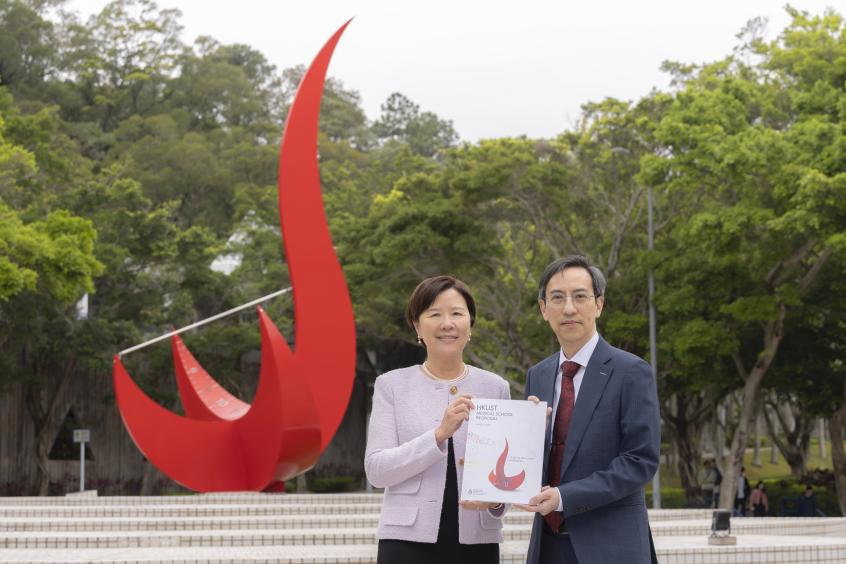
The Hong Kong University of Science and Technology (HKUST) submitted its formal proposal to the government today for the establishment of Hong Kong’s third medical school, an important initiative highlighted in the 2024 Policy Address by the Chief Executive of the HKSAR.
Under the guidance of the government’s 10 key parameters for establishing the new medical school for Hong Kong, the University’s 150-page proposal details the innovative strategic positioning, curriculum design, staffing, clinical exposure and learning resources, student admissions, and sustainable funding models. The curriculum incorporates advice from different HKUST committees and task forces consisting of top medical experts such as former Hospital Authority chairman Dr. LEONG Che-Hung and four former and current deans of local and mainland medical schools: Prof. Rosie YOUNG Tse-Tse, Prof. FOK Tai-Fai, Prof. Raymond LIANG Hin-Suen and Prof Wong Tien-Yin. It is designed to complement the existing two local medical schools while meeting both international standards and local societal needs.
To fulfill the government's expectation that the new medical school should promote diversification, internationalization and leverage the clinical expertise of the Greater Bay Area (GBA) , HKUST has been dedicated to forging partnerships since first announcing its intention to establish the city's third medical school in early 2024. To date, the University has signed agreements with over 20 leading medical institutions and hospitals locally, nationally, and internationally, spanning Hong Kong, the GBA, Beijing, the Yangtze River Delta, Central China, the UK, and the US. These partnerships will bring about short-term clinical courses, practicum opportunities, faculty exchanges, and joint research initiatives, ensuring students to gain diverse clinical exposure while advancing cross-border medical innovation.
In support of the government’s vision to nurture more medical professionals to address pressing healthcare challenges arising from an aging population, HKUST was the first institution to express interest in establishing the third medical school. Leveraging its unique strengths in artificial intelligence (AI) and cutting-edge technologies, HKUST aims to create a medical school where clinical excellence meets technological ingenuity in shaping the future of medicine. The University envisions nurturing a new generation of doctors who are clinically competent, tech-savvy and possess with scientific mindset, to drive medical innovations and transform healthcare delivery.
HKUST President Prof. Nancy IP expressed her heartfelt gratitude for the tremendous support received for the medical school project. “I am profoundly thankful to the local and overseas medical experts, scholars, institutional partners, different stakeholder groups and colleagues, who have contributed to our proposal. We are united by a shared vision in nurturing tech-savvy clinicians capable of transforming healthcare. Having worked tirelessly over the past two years and with wholehearted commitment to realizing HKUST Medical School, we are thrilled to reach this pivotal step in our journey to shape the future medical education for Hong Kong and beyond. Our ambition extends beyond addressing Hong Kong’s healthcare challenges; we aspire to pioneer solutions with global impact. We are confident that our proposed School will elevate the city as an international beacon of medical innovation, while empowering future leaders to transform patient care around the world.”
Since early last year, HKUST has invited a diverse lineup of experts to offer strategic advice critical to the successful establishment of the third medical school through various committees and task groups. Chaired by Dr. Leong, the Council Advisory Group advises on the school’s overall strategic planning. The Group consists of international luminaries such as Prof. the Lord Ara DARZI from the Imperial College London who is also a former UK health minister; Prof. David HO from the Columbia University, who revolutionized HIV treatment with his invention of combination anti-retroviral therapy; Prof. Roger KORNBERG from Stanford University and a 2006 Nobel Prize winner in Chemistry; as well as Prof. WONG Tien-Yin, Dean of Tsinghua Medicine and a preeminent ophthalmologist.
The Planning Committee, led by HKUST Honorary Court member Dr. Michael MAK Hoi-Hung and comprises HKUST Council members and professionals across medical services, higher education, law and finance, advises on strategic planning, stakeholder engagement, and talent recruitment. Meanwhile, the committee’s Medical Education Task Force, led by Prof. Fok and Prof. Liang with Prof. Young as Special Adviser and other public doctors and specialists as members, reviewed and assessed the design of the proposed curriculum.
The more than 20 institutions that have pledged collaboration with HKUST on clinical education, talent nurturing and research cover renowned hospitals and medical schools from Hong Kong, mainland and overseas. Hospital partners include The First Affiliated Hospital of Sun Yat-sen University in the GBA; Peking Union Medical College Hospital in Beijing; as well as Hong Kong Sanatorium & Hospital and Hong Kong Adventist Hospital locally. For Medical schools, partners include Peking University, Tsinghua University, Fudan University, Zhejiang University, as well as Imperial College London and University of California San Diego. (Full partnership list here)
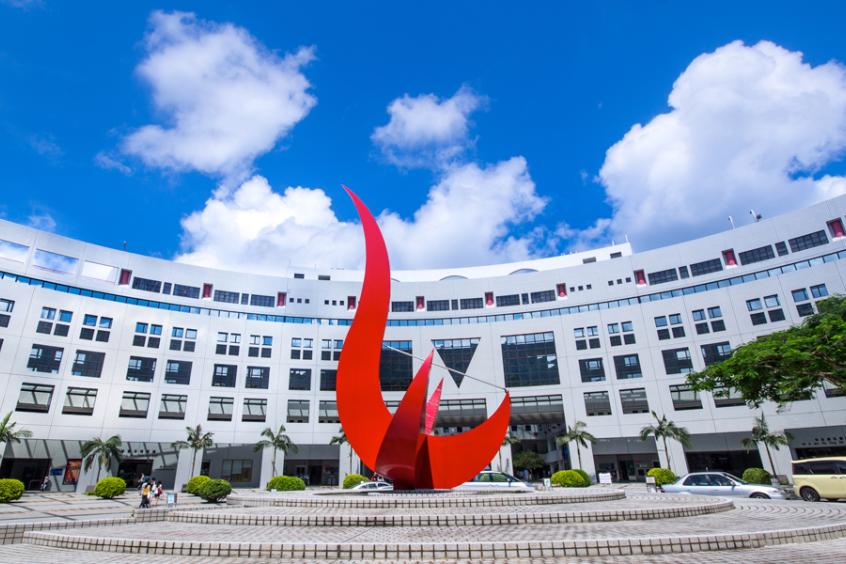
The establishment of Hong Kong's third medical school at The Hong Kong University of Science and Technology (HKUST) was approved today by the HKSAR Government (the Government). This landmark decision underscores the visionary leadership of the Government in fortifying Hong Kong’s medical system.
The University expresses its deepest gratitude to the HKSAR Government for its trust and to the dedicated Task Group on New Medical School for its thorough and rigorous assessment throughout the selection process. This approval represents a significant advance in addressing Hong Kong's future healthcare needs through an innovative, interdisciplinary approach to medical education.
A Strategic Government Initiative for a Healthier Future
The careful selection and approval process, guided by the experts of the Task Group, ensures this new school will be a powerful complement to the existing medical ecosystem, directly addressing long-term societal needs.
HKUST Council Chairman Prof. Harry SHUM welcomed the Government's decision, stating, "We are profoundly honored to be recognized as a partner in the forward-looking strategy of the HKSAR Government to foster healthcare innovation and develop a robust pipeline of medical talent. HKUST is fully committed to fulfilling this vision by cultivating a new generation of medical pioneers who will lead with clinical excellence and technological mastery, bringing lasting benefits to Hong Kong and beyond."
Realizing a Shared Vision for Next-Generation Medicine
HKUST President Prof. Nancy IP extended the University's sincere thanks for the Government's decision and the Task Group's support of its proposal. She said, "The establishment of the medical school is a powerful validation of the Government’s strategic vision. We are grateful for the opportunity to prepare a new generation of clinicians through integrating rigorous clinical training with technological proficiency, empowering our graduates to excel as future practitioners and leaders in the evolving healthcare landscape. We look forward to the continued support from the Government and the Task Group experts during the implementation phase. HKUST pledges its complete commitment to bring this shared vision to life."
Chairman Shum and President Ip further stated: "We would like to express our heartfelt gratitude to all members of the HKUST community—including the Council Advisory Group, the Planning Committee, faculty, and staff. Everyone has worked in unison with collective determination, dedicating their utmost efforts to the development of the medical school. This achievement reflects the dedication and valuable expertise of all involved. Such an outcome was indeed hard-earned, and we solemnly recognize the weight of our responsibilities moving forward. Now, as we embark on this critical mission of establishing the medical school, we are committed to working closely with the Government, the Hong Kong Medical Council, the Hospital Authority, the two local medical schools, the medical sector, and community partners to jointly cultivate outstanding medical professionals and drive innovation in global medical technology and clinical practice."
Building on a Foundation of Innovation, Guided by Public Service
The new medical school will be built upon a solid foundation of HKUST’s distinctive advantages. It will draw upon the University’s deeply international character and global networks to attract diverse talent and foster a world-class learning environment. The school will cultivate a new breed of medical professionals: ethically grounded, clinically outstanding, and technologically adept. The school will leverage HKUST's strengths in data science, artificial intelligence, and robotics, embedding these technologies directly into clinical training. This interdisciplinary model, which merges science, engineering, and business, will equip graduates to solve complex health challenges and drive translational research from the lab to the bedside, leading to breakthroughs in diagnostics, therapeutics, and patient care.
For more information about the School of Medicine, please visit here.
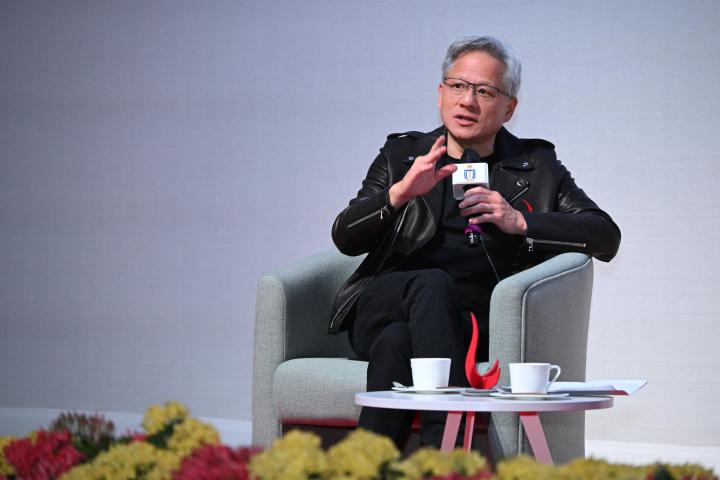
“You have the opportunity for the very first time to create something from the ground up, where the technology is embraced…and...advanced...”
Dr. Jensen HUANG, The founder of NVIDIA and Honorary Doctorate of HKUST









